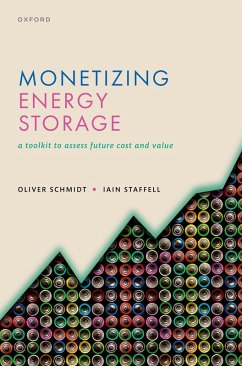This is an open access title available under the terms of a CC BY-NC-ND 4.0 International licence. It is free to read at Oxford Academic and offered as a free PDF download from OUP and selected open access locations. Energy storage is becoming the enabler of the low carbon energy transition, and is increasingly attracting the attention of business professionals, policymakers and academics. These stakeholders need to understand the wide range of storage technologies, the applications they can serve in, and the methods, data and tools to evaluate their current and future economic potential. This book combines rigorous methods with rich datasets to provide objective and transparent evidence on the cost reduction potentials and the value of energy storage across low-carbon electricity systems and clean transportation. It enables readers to understand the key storage technologies, the services they can provide, and how they can be assessed for economic viability.
Dieser Download kann aus rechtlichen Gründen nur mit Rechnungsadresse in A, B, BG, CY, CZ, D, DK, EW, E, FIN, F, GR, HR, H, IRL, I, LT, L, LR, M, NL, PL, P, R, S, SLO, SK ausgeliefert werden.









